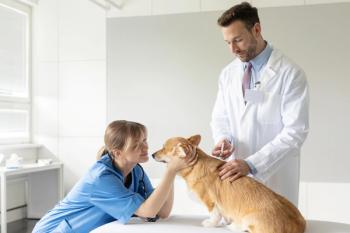
How do I assess my practice's profitability? (sponsored by Intervet/Schering-Plough Animal Health)
Use an online worksheet, evaluate accounts receivable, and more.
An online worksheet can help
Sometimes it can feel like financial statements are written in Greek. So the first thing to do is ask your advisors—a financially minded colleague, a consultant, an accountant, a bookkeeper—what those numbers mean.
Once you understand the numbers, there's a free resource online to help you determine your profitability. Download the "No-Lo Practice Worksheet" from VetPartners (
The next question is, what level of profitability should you expect? There are very few benchmarks available today to answer this question, but generally, 15 percent to 20 percent is a safe and achievable goal for equine practices.
Jim Guenther, DVM, MBA, MHA, CVPM
Strategic Veterinary Consulting
Asheville, N.C.
Try good, better, or best
Here's the easiest way to get a general idea of your profitability: Add up your bills for a given year and subtract them from the money you collected. If you never want a partner, never want to sell your practice, and never plan to be divorced, this method has its merits. It's inexpensive.
Photo: Getty Images
The next best strategy is to hire an accountant. This person will categorize your expenses and develop balance sheets and other forms that loan officers love. I find the profit-and-loss statement easier to navigate with an accountant's help. As the years go on, this person can help you develop a tracking system to spot problem areas and create budgets.
The most precise method of determining profitability is evaluating your practice for sale. This is where you find out what it really costs you to put gas in your personal car, make your horse trailer payment, and forget to charge for castrations. This process is costly but invaluable if you take the time to understand—and act on—the information it yields.
Gregory Smith, DVM
East County Large Animal Practice
El Cajon, Calif.
Get to know your accounts receivable
Because accounts receivable likely play a big part in your practice, you need to be extremely familiar with the accounts receivable module of your practice management software. Make sure you know the clients who owe you money before you go out to work on a horse. Pay attention to your credit card balances and know whom you owe money.
Prepare your financial statements on the accrual basis (count your revenue when you produce it) so you can match your production revenue against the expenses that you incur. Talk to your accountant to learn the difference between accrual financial statements for managing your practice and cash-basis financials for preparing a tax return. He or she can show you how a cash flow statement can help you understand how to reconcile the profit on your income statement to the balance in your checkbook.
Elise Lacher, CPA
Strategic Veterinary Consulting
Seminole, Fla.
Newsletter
From exam room tips to practice management insights, get trusted veterinary news delivered straight to your inbox—subscribe to dvm360.





